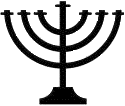The Jews In Sicily

The Jews In Sicily | 
|
|
“Olive oil beaten for the light” It is May in Calabria, an isolated region stretching from the “instep” to the “toe” of the Italian “boot,” and the olive trees are in bloom. Tiny cream colored flowers grace each branch as we southern Italians await the first fruits of our ancient olive trees, mentioned as they are over 30 times in the Torah and emphasized in Parashah Emor (Leviticus 21:1-24:23). The Kohanim are a busy bunch with rules to follow and procedures to maintain, not the least of which is the work ”to cause a lamp to burn continually.” (24:2) To make that happen we are instructed to use “olive oil beaten for the light.” An ancient practice? Perhaps for some, but living and working as I do in the Calabrian hills, I observe how my family and friends make olive oil. I am fascinated as they employ agricultural practices that are thousands of years old, and while I watch, I am reminded how our Jewish traditions continue to inform our lives. Botanists tell us that the olive tree, an evergreen, can live thousands of years. In Israel in the Galilee seven giant olive trees continue to bear fruit as they have done for over 3000 years. On the Italian island of Sardinia two olive trees are believed to be nearly 4000 years old, but many of the trees on my family’s land are just babies, none older than eight hundred years! In early autumn the hillsides will come alive with activity as young and old spread bright orange nets under the trees and prepare for the “raccolta,” the olive harvest. Next, mothers, fathers, brothers, sisters, grandparents, the whole “meshpucha,” will work side by side to pick the olives by hand. “Beaten for the light,” is Torah’s way of saying “first press.” And we Calabrian Jews know just what that means. Just as our ancestors before us, we take up mortar and pestle and make a small quantity of the purest oil as the olives are beaten by hand to make oil “for the light,” for the sacred lamp. If we do it correctly we know that we’ve conformed to biblical tradition where we read, “Oil prepared in this way is said to be particularly pure.” (Leviticus 24:1-3). In Parashah Emor we Jews are commanded to kindle the Ner Tamid and then we are told how to make the pure olive oil that will assure the completion of the task. In our Reform/Progressive Jewish tradition the Ner Tamid is often seen as a symbol of the light that was released from the shards that God used to create light and goodness. Our job as human beings is to live our lives in partnership with the Divine to gather the lost light and thus make the world a better place. As my family picks, culls and crushes our olives into oil, I think of these things. We are marranos and anousim trying to gather our lost light. Italian traditions hold a place of honor in our daily lives, while our ancient Jewish heritage lights the path – a path illuminated by precious fragrant oil that is “beaten for the light.” Rabbi Barbara Aiello serves Sinagoga Ner Tamid del Sud, Serrastretta (Calabria) Italy and as Director of the Italian Jewish Cultural Center of Calabria (IjCCC) www.rabbibarbara.com/.
This page is maintained by Art Dieli.
Last updated 5/1/10 |